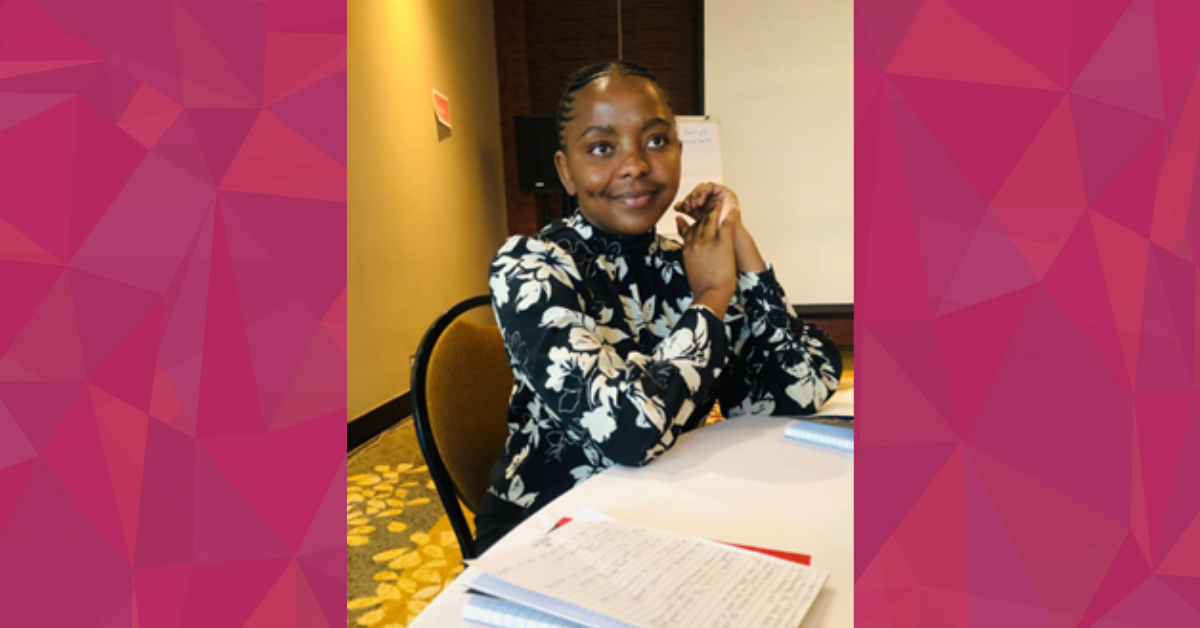Febbe Amutenya, Jhpiego
Meaningful engagement of young people is a key strategy of the MOSAIC project and CATALYST, its flagship study of choice in HIV prevention. But what does meaningful youth engagement really mean? As a youth representative of MOSAIC’s NextGen Squad and a program coordinator supporting MOSAIC implementation in Namibia, I have had a chance to experience it first-hand.
Back in May, I helped coordinate a meeting hosted by Namibia’s Ministry of Health and Social Services (MHSS) with support from USAID Namibia and MOSAIC Namibia to review the national standard operating procedures (SOPs) for oral pre-exposure prophylaxis (PrEP) and the PrEP provider training curriculum. Our goal was to update these tools for PrEP providers in Namibia so they can deliver PrEP informed by the most up-to-date guidance. I continued to work with government leadership and other partners on these national PrEP tools after the initial meeting.
Real impact
My fellow meeting participants included representatives from the MHSS, donor agencies, advocacy groups, and other implementing partners. The meeting commenced with enlightening overviews of the current PrEP SOPs, gaps in the national PrEP program, and WHO’s latest oral PrEP guidance. Participants were then divided into working groups for the week to address specific focus areas and identify gaps to be addressed in the updated PrEP SOP and training materials.
My contributions to the PrEP SOPs mostly focused on its last two chapters, which are about monitoring and evaluation and demand creation. Our monitoring and evaluation working group noted there is a need for a PrEP-only database to capture patient-level data. Although patient-level data is gathered with paper-based data collection tools, those data are not captured electronically. The existing module in the District Health Information Software 2 (DHIS2) database is designed to provide only aggregate statistics.
I also worked closely with the demand creation working group. These discussions stood out to me because of the role that we—members of the priority populations who identify as adolescent girls and young women and men who have sex with men—played. We ensured that topics that were missing from the chapter, such as demand creation at different levels and diverse audiences for PrEP messaging and communication channels, were added. These additions will be impactful because they promote targeted messaging for different PrEP audiences, which will encourage uptake among these populations.
What was most exciting was the high interest in and preference for new PrEP options among members of priority populations, who were particularly intrigued by CAB PrEP because its formulation is perceived as convenient. It is even more exciting that new methods are under discussion and in the pipeline for Namibia!
Listening to youth
Another youth representative, Eugenia Jantjies of AfriYAN, noted in a powerful statement that our active participation in the meeting is evidence that Namibian youth are considered “well-able to make impactful contributions” to address challenges in our country’s health care system.
It is of paramount importance that youth perspectives and voices are prioritized, heard, and considered during decision-making processes. … The MHSS showed inclusivity in creating a platform for the youth to address, create, and develop tailored solutions, as a collective, to improve the accessibility of health care and service delivery for all, and especially the youth in our country.
EUGENIA JANTJIES, CHAIRPERSON, AFRIYAN, KHOMAS REGION
I chaired and facilitated the plenary discussions on day three of the meeting, which was a great opportunity for professional development and growth. The experience really built my confidence. I connected with stakeholders from different technical areas and engaged in meaningful discussions about PrEP use and HIV prevention in Namibia.
Since May, I have continued to work with the MHSS and other members of the PrEP Technical Working Group (TWG) to revise and update the PrEP SOP based on agreements made at the initial meeting. We are on track to have the updated PrEP SOP validated by the TWG in November. I am thrilled to have been a part of the review meeting and to have had the opportunity to see the SOPs through. I feel that my voice was heard and considered in the updates to the national documents and that I have contributed to national public health policy. I am excited to see the updated PrEP SOPs in action!
Featured Image: Febbe Amutenya at work in Windhoek, Namibia (MOSAIC).


